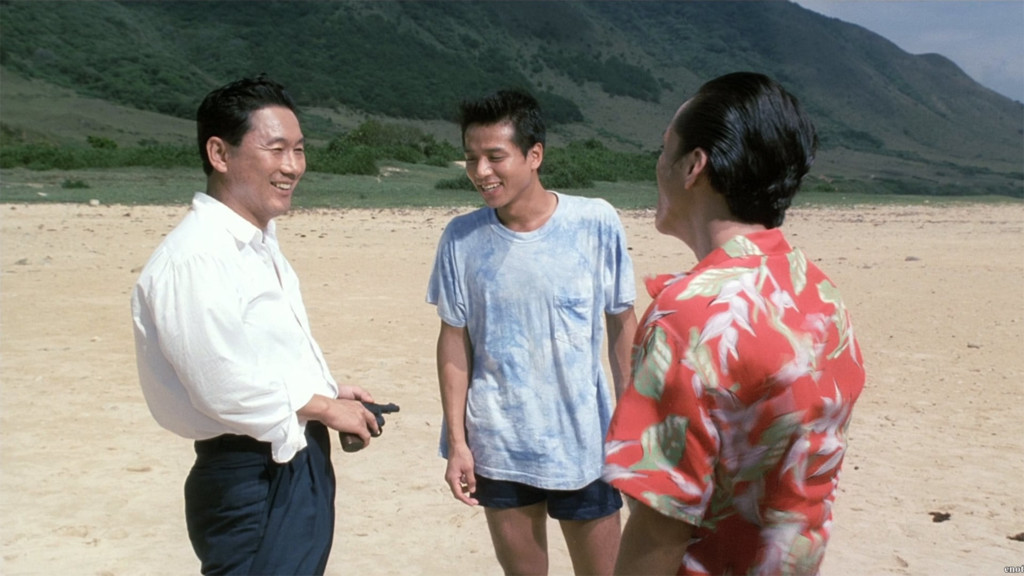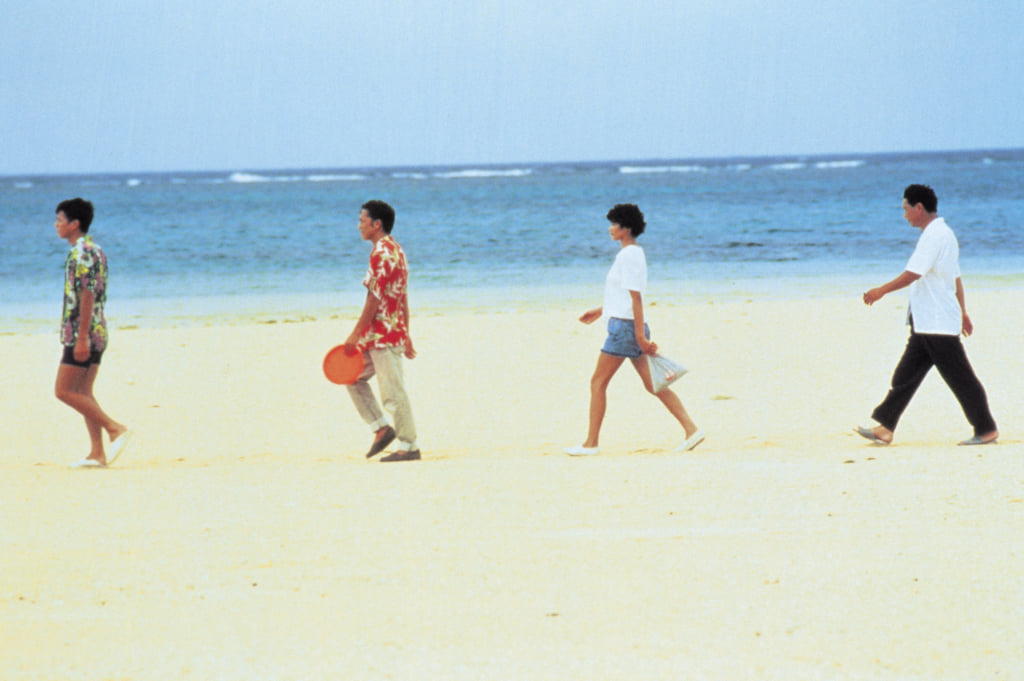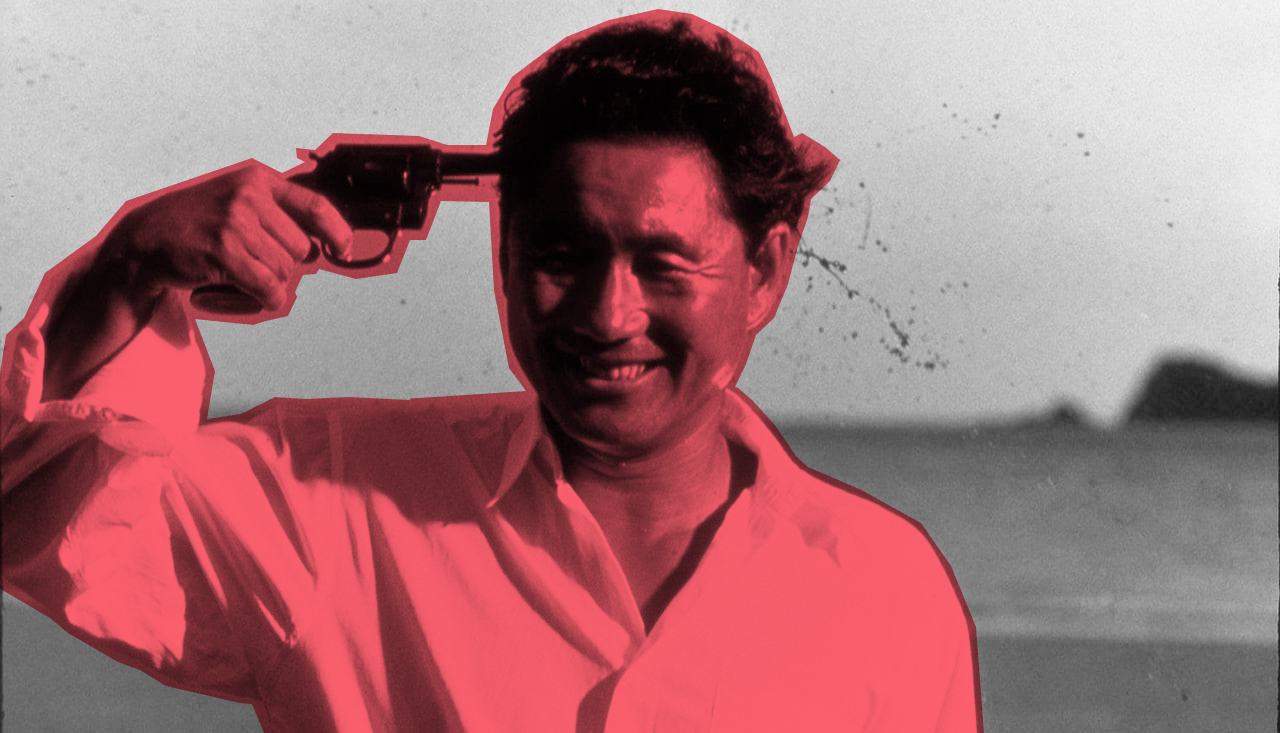Before he turned his attention to movies, Kitano Takeshi was widely known in Japan as a comedian and tv entertainer. It is not at all surprising then that films such as Sonatine were initially a failure in their country of origin.
The public expected an absurd comedy, a dramedy, perhaps, but never this – a nihilistic piece on yakuza violence.
Murakawa is a yakuza-enforcer thinking of retirement and tired of his life. He is sent to Okinawa by his boss, supposedly in order to mediate between two allied gangs, but that is just an excuse, as his boss plans to get rid of him.
Forced to lie low, Murakawa and his men idle their time away on the beach, playing games that mimic yakuza rituals and traditions – and that are always disturbingly violent.

While gangster movies are usually known and criticized for their glamourous depiction of violence, in Sonatine violence is boring, meaningless, and funny at times, nevertheless.
Kitano’s lack of facial expressions and reaction to events adds to this feeling of numbness, and suits the overall tone perfectly. It is questionable, however, whether that is intentional or just a by-product of Kitano’s inability to act.
That would be actually one of the main criticism aimed at the movie after it premiered in Cannes in 1993. French publisher Jean-Pierre Dionnet reported that Alain Delon watched Sonatine after someone told him that Kitano was a fan of Le Samuraï (1967) – and he was not thrilled. He even stated that Kitano “only has three facial expressions.”

He has a point, but Sonatine is still a gem. It defied genre expectations at the time, and still does to this day. The film has aged gracefully, as time has added a heavy nostalgia layer for 90s’ Japan. The colourful shirts and retro score by Hisaishi Joe only add to its charm.
A different brand of summer movie.
All images belong to their respective owners.

